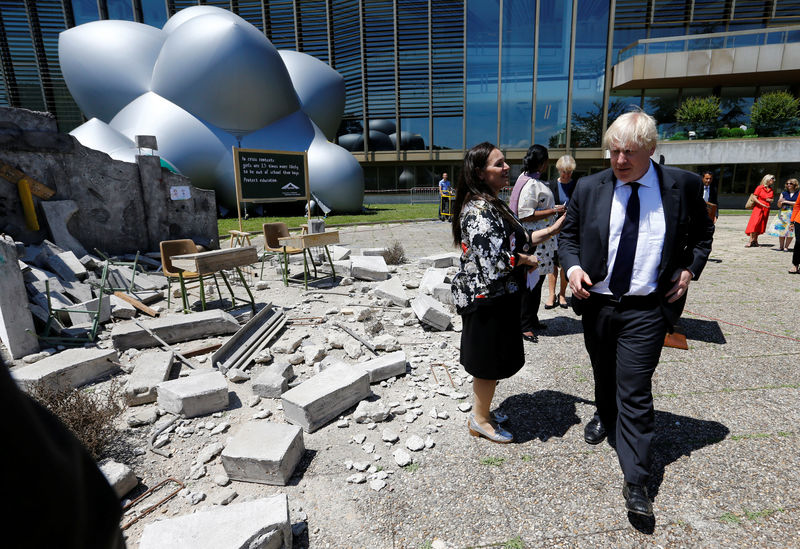GENEVA (Reuters) - British Foreign Secretary Boris Johnson said on Monday that government plans for a boost to spending on the state-run National Health Service (NHS) would come in part from savings generated by leaving the European Union.
Prime Minister Theresa May pledged on Sunday to increase funding for the NHS by 20 billion pounds ($26.57 billion) after Brexit, though critics say the plans lack detail.
Johnson, who was visiting Geneva to address the U.N. Human Rights Council, dismissed the idea that many people thought relying on a "Brexit dividend" was nonsense.
"The important point is that you can only afford to fund the NHS well if you have a strong vibrant and dynamic economy where the government is focussed on enterprise and growth, so that's why I think we're able to do it," he told reporters.
"And the second thing is, I think, as the PM (Prime Minister Theresa May) rightly said, it's a downpayment on future receipts that will come to this country -- come to the UK -- as a result of discontinuing payments to Brussels."
He declined to comment on whether budget cuts would need to be made in other areas of government or whether taxes would need to go up.
Britain is due to leave the EU on March 29, 2019, though it is negotiating transitional arrangements to soften the economic and legal impact of withdrawal from a club it joined more than four decades ago.
May's Brexit plans face rejection by parliament's upper chamber, the House of Lords, on Monday, setting the stage for a high-stakes confrontation with rebel lawmakers later in the week which could rock her minority Conservative government.
Asked whether the government could fall if it loses the vote, Johnson struck an optimistic note.
"We are absolutely confident that we will deliver a Brexit deal that will... be good for the UK, good for our European friends and partners. We’re going to get on and do it," he said.

He declared it a "tonic" to be in Geneva, the home of the World Trade Organisation, where he said other countries were enthusiastic for Britain to return to its place as a campaigner for free trade.